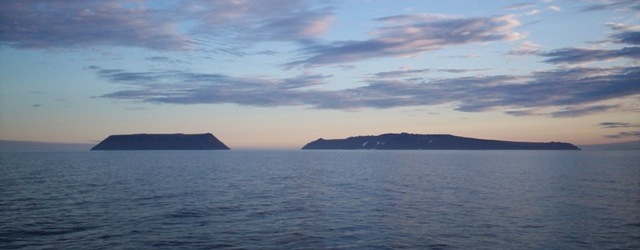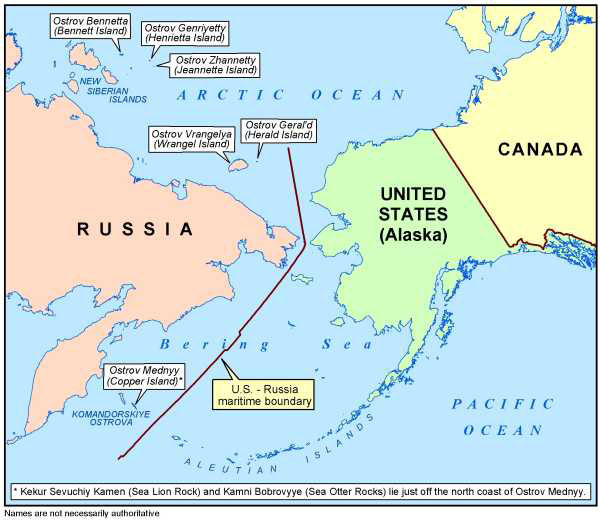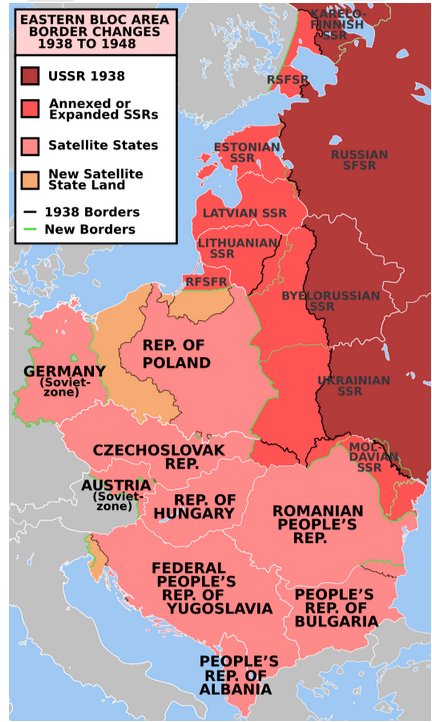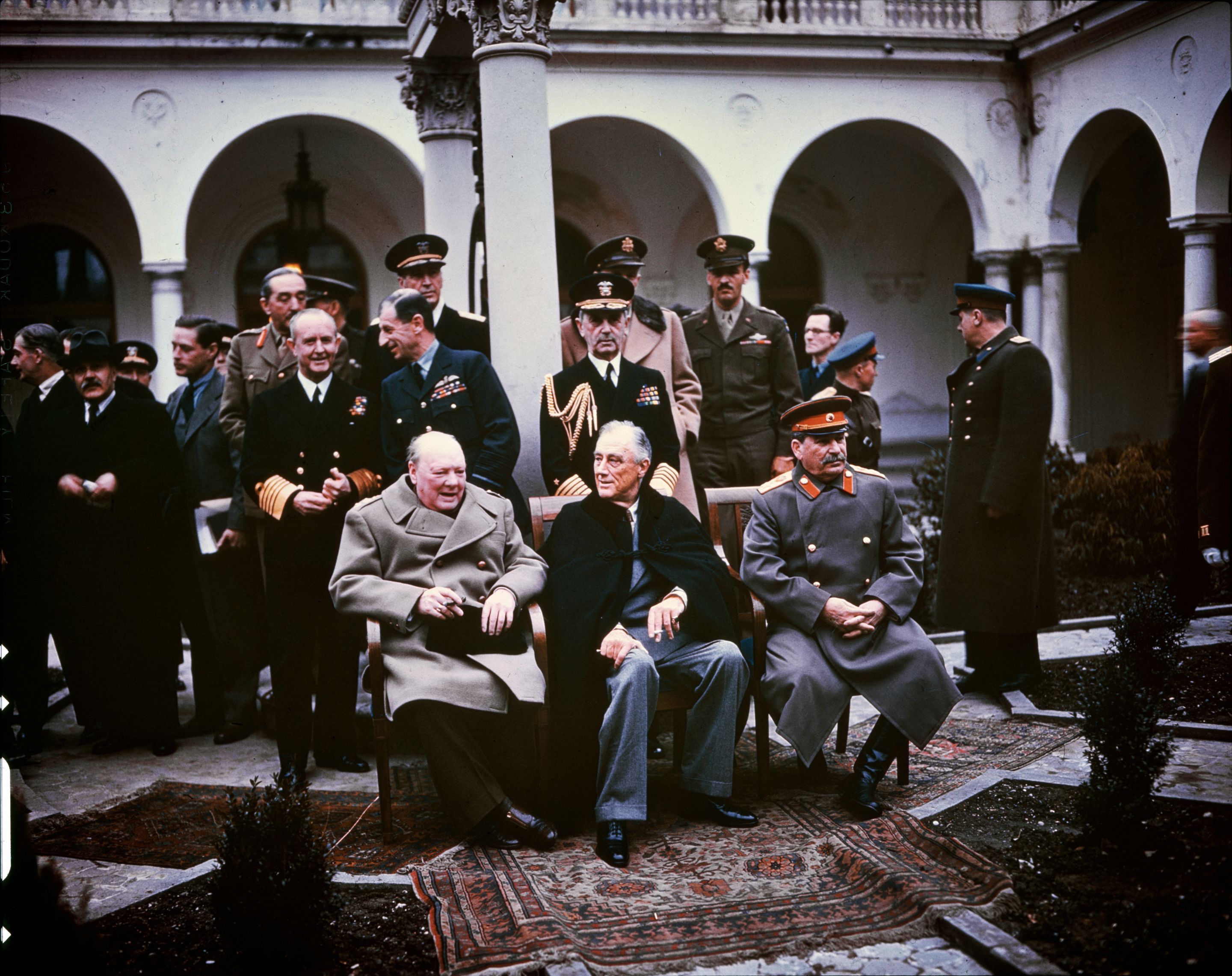Little Diomede (USA) and Big Diomede (Russia): 2.4 Miles Apart Dave Cohoe. Used under
Dave Cohoe. Used under 
Not only is our Russian neighbor close, but our neighbor is also interested:
October 21, 2024,
Associated Press: "The U.S. Coast Guard said Tuesday that it spotted two Russian ships and two Chinese vessels passing through the Bering Sea in formation on Saturday, in a sign of the growing cooperation between Beijing and Moscow in the Arctic."
Or, to look at it another way:
 U.S. government.
U.S. government. 
One more perspective on the proximity of Russia to the U.S. was
offered by Sarah Palin in 2008:
"They're our next-door neighbors, and you can actually see Russia from land here in Alaska, from an island in Alaska".
Maybe, after looking at the Diomede Islands and the map, people who live in the U.S. might not be as reassured by the 'nice ocean' (
referred to by Zelensky in his beat down by Trump/Vance) that stands between the U.S. and the Russian instigated war in Ukraine.
Trump has said that Ukraine is Europe's problem. European countries are the ones who may be threatened, he suggests. He
stated last week, “I’m not going to make security guarantees beyond very much - we’re going to have Europe do that because we’re talking about Europe [who] is their next door neighbour...”
The U. S. president has an interesting perspective on the concept of next door neighbor. There are many European countries that are not as close to Russia, geographically, as the U.S. The United States, does, after all, share a maritime border. A quick read of the
1990 Maritime Boundary Agreement between USSR and the U.S. suggests a number of issues that could arise between the two sovereign nations along their shared border.
The Trump/Vance Beatdown of Zelensky in the Oval Office
I've listened to this event as it played out and I've come away with two impressions (among many): Zelensky didn't want to sign an agreement unless it had a provision that Russia's compliance would be assured with a backstop. To justify his skepticism about Russia's trustworthiness, he offered experience as a guide--his experience with Putin's failure to follow the terms of a previous agreement. Zelensky did not want to sign away Ukraine's territorial security without an assurance that Putin's forces would be repulsed if they invaded again. Trump/Vance were infuriated by Zelensky's lack of trust in Putin, and by the Ukrainian president's insufficient servility (Trump: "You have to be thankful"). But it seems they were mostly infuriated by Zelensky's facts, by his referring to the
2019 agreement, brokered by France and Germany.
 https://www.youtube.com/watch?v=0KO_JFoSpJ4
https://www.youtube.com/watch?v=0KO_JFoSpJ4 Putin's previous breach of trust made Trump's assertion that Putin "Will keep his word", patently naive, or even disingenuous.
Zelensky's wariness of an unsecured ceasefire is based on more than experience. It is based on Putin's own assertion that Ukraine is not a country with a culture and identity separate from Russia's. In July of 2021 Putin wrote a long
article on the history of Russia and Ukraine. He went into the history of the region and described "Russia and Ukraine" as having "the same historical and spiritual space". He viewed as a "misfortune and tragedy" the "wall" that has grown up between Russia and Ukraine.
As Zelensky stated in his Oval Office conference, Putin does not recognize Ukraine and its people as being distinct from Russia. As a matter of fact, he does not recognize the countries that were formerly part of the Soviet bloc as having a right to independence.
Here is a map of what the Soviet bloc looked like in 1948. You'll note how man of these countries became independent after the
breakup of the Soviet Union in 1991.
 Mosedschurte at English Wikipedia. Used under CC Attribution Share alike unported license
Mosedschurte at English Wikipedia. Used under CC Attribution Share alike unported licensePutin has decried the loss of the Russian empire. He has described it as a great tragedy. He explains that Russian people in those former satellite nations have been separated from Russia proper.
In a December 2021
speech given at Solchi, Russia, Putin said that "25 million Russian people in newly independent countries suddenly found themselves cut off from Russia". He described this separation as "a major humanitarian tragedy". Two months after he delivered this speech, Russian troops invaded Ukraine.
In the
YouTube video below, Harvard Professor Serhii Plokhy explains Putin's view on the collapse of the Soviet Union. Plokhy describes a Putin world view in which loss of life has less importance than gaining and holding together an empire that he (Putin) believes unifies those he considers to be Russian people.
 https://www.youtube.com/watch?v=L9pzG3697e0
https://www.youtube.com/watch?v=L9pzG3697e0There can be little question in the minds of those who read Putin's words and observe his actions that ambitions include not only absorbing Ukraine into Russia proper, but also expanding the territory of Russia to include its former satellite nations.
Does it matter to the U.S. if Russia takes over Eastern Europe, and maybe even all of Europe?
The isolationist policy of Trump's America First suggests that the U.S. can go it alone. I don't know what Trump and the America First movement expect from a world in which Europe is not an independent, strong ally of the U.S.
After WWII, a calculated balance of power was extablished. This was carefully devised by the victors of that war to create a kind of stasis in which no country could gain the upper hand. In the eyes of the U. S. at the time, a strong Western Europe was essential as an ally. That was the whole point of the
Marshall Plan. The U.S. wasn't being generous in rebuilding Europe. It was investing in its own security.
Churchill, Roosevelt and Stalin Deciding on the Balance of Power After WWII UK National Archives.
UK National Archives. 
Several leaders in Europe have suggested that it may be necessary for them to go forward into the future without U. S. support. The new German P.M., Friedrich Merz, said that Europe had to learn to be
independent of the U.S. Czech Prime Minister Petr Fiala
said, "Europe...must take care of its own security."
Do we really want Europe to examine its relationship with us, to decide that European countries will form closer security and economic ties among themselves? If they act together as an economic and security bloc, they can form alliances with others. It would be interesting if the U.S., in its isolation, found a reorganized world order, one in which the combined resources and strength of new alignments would compete with the U.S.


 https://www.youtube.com/watch?v=0KO_JFoSpJ4
https://www.youtube.com/watch?v=0KO_JFoSpJ4 https://www.youtube.com/watch?v=L9pzG3697e0
https://www.youtube.com/watch?v=L9pzG3697e0
